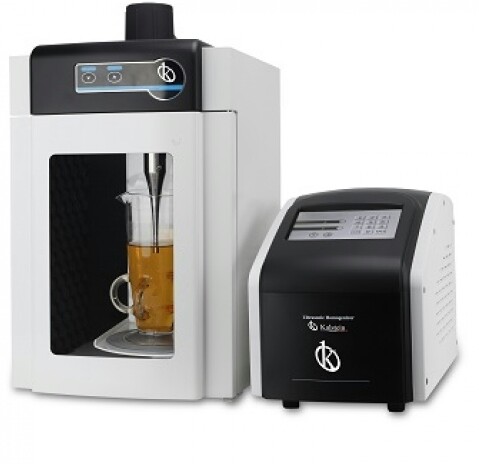There are many models of laboratory homogenizers on the market. Below we will show you different models, tips and information so that your homogenizer is the most suitable for your processes and you feel satisfied with your purchase.
Type and models of homogenizers
Depending on the manufacturing technique, we can show you three main types of laboratory homogenizers:
- Fluidized bed homogenizer: This type of homogenizer operates with a process in which an ascending stream of fluid that can be liquid, gas or both, suspends the solid particles; which behave like a fluid. This device is regularly presented in large sizes, which is often inconvenient for laboratories.
- Rotor-stator homogenizer: They have a system designed to achieve excellent homogenization due to a rotor with bladed blades that rotates in a stationary state at high speed, having holes through which the fluid moves. In many cases it offers multiphase configurations of rotors and stators and special ultra-fine meshes that provide high intense shear, further reducing homogenization times by reducing the number of recirculation steps required.
- Ultrasound homogenizer: It offers a mechanical process in which the particles in a liquid are reduced, in order to obtain uniformity in their size and distribution (improving the stability of the product). This type of homogenizers are on the market both for laboratories and on an industrial scale, they come in various sizes to suit your needs.
According to its ease of arrangement
- Floor Homogenizer (high pressure homogenizer): They are the largest, they can use fluidized bed technology, rotors and stators or ultrasound. If you have enough space in your laboratory and you have regular work that requires high-power equipment, we recommend buying one of these.
- Table Homogenizer: It has a rotary movement, they are versatile for use, they are ideal for emulsifying, mixing and grinding different types of samples, they work at different speeds. They come in various sizes and capacities.
- Portable Homogenizer (handheld homogenizer): They present rotary movements, work at speeds ranging between Min: 5000 rpm and Max: 35000 rpm. Available models typically use polycarbonate or stainless steel test leads. It is ideal if you want to move from one place to another to carry out tests, they have a good level of homogenization due to the high speed motor and it has high torque.
At Kalstein we are MANUFACTURERS of laboratory equipment so we offer you innovative laboratory homogenizers, with different designs and applications, adjusted to the needs of your laboratory and at the best PRICES on the market. That is why we invite you to take a look at the Products HERE

